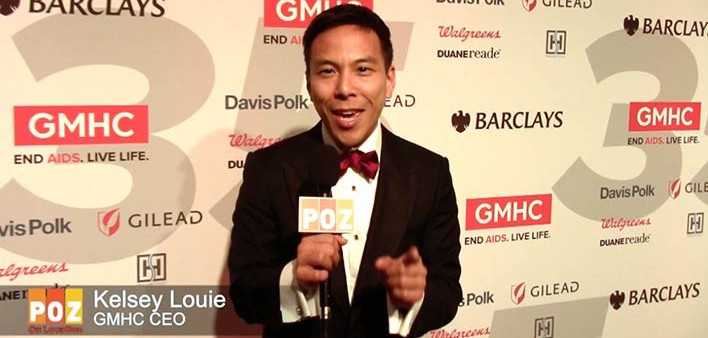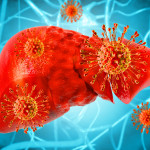Kelsey Louie, MSW, MBA, is the CEO of Gay Men’s Health Crisis (GMHC), the world’s first, and nation’s leading provider of HIV/AIDS care, prevention services, and advocacy. A member of AIDS United’s Public Policy Council, GMHC also advocates for stronger public policies at the local, state, and federal level, with the goal of ending AIDS as an epidemic in New York State by 2020.
In recognition of National Asian & Pacific Islander HIV/AIDS Awareness Day and National Hepatitis Testing Day, we caught up with Kelsey to learn more about GMHC’s work to provide care, build community, and reduce stigma.
How did you become involved in this field?
When I was younger, I thought I wanted to become a doctor, but when I got to college and started taking different kinds of courses I realized there were other ways I could help people. That turned me on to social work, which I knew would allow me to help all kinds of people—and, particularly, people who are members of marginalized communities.
I started working with children, which was wonderful, but then I decided I wanted to work with the LGBTQ community. That’s when I first came to GMHC, in 2006. I was eventually recruited to work at Harlem United Community AIDS Center. I spent seven years of my career, including serving as Chief Program Officer and, later, Chief Operating Officer. I loved the work we were doing for our patients and clients, being a part of the HIV/AIDS service community, and driving a lot of the impact Harlem United had. So, when GMHC came calling in 2014, I knew I couldn’t turn down an offer to run the world’s first AIDS service organization, which serves more than 13,000 clients each year.
When we talk about HIV, we don’t often talk about Asian and Pacific Islander (API) communities. What do you want people to know on National Asian and Pacific Islander HIV/AIDS Awareness Day, which is marked each May 19?
First, I want to remind people that every community is affected by HIV. One of the most effective ways to do this is through commemorating specific awareness days, and I’m pleased that the Asian and Pacific Islander communities have their own day for us to recognize how HIV affects them. The Asian and Pacific Island communities may not be the most disproportionately affected by HIV, but nearly 6% of GMHC’s clients are members of these groups. They need our help.
According to the 2010 Census, about 14% of New York City’s population is Asian—which is more than 1 million people—and nearly 19% of New York City’s Asian community lives in poverty. We know that poverty is a main driver of the epidemic, and as Asian populations continue to grow in New York City and around the country, we’re going to see more members of these groups newly diagnosed with HIV. We understand that specific communities respond to specific kinds of outreach, which means we need to work harder to understand how to reach Asian and Pacific Islander communities with information about HIV and AIDS.
May is also Hepatitis Awareness Month. Can you speak more to the impact of viral hepatitis on API communities?
The impact of viral hepatitis on Asian and Pacific Islander communities in the United States is staggering. While these communities make up less than 5% of the total U.S. population, they comprise more than 50% of all people in the U.S. living with Hepatitis B. Much of this is because the vast majority of Asians and Pacific Islanders living in the U.S. were born in their native countries, where chronic Hepatitis B is rampant. We need to work to educate these folks as viral Hepatitis can be treatable, and we need to educate them about preventing infections in the first place through vaccinations.
What barriers to testing and care—for HIV and viral hepatitis—exist for API communities? How has GMHC worked to counter these barriers to better serve API communities?
It can be difficult for us (and many other service organizations) to reach Asian and Pacific Islander communities for many reasons—especially language barriers. Some Asian cultures also have a mistrust of traditional Western medicine, and those barriers can be difficult to overcome. But we have a saying in the HIV and LGBTQ health world: “We reach people where they’re at.” So, at GMHC, we strive to understand the needs of all the communities we serve, which in turn helps us determine how to best reach them. We also work with members of specific communities to educate them about HIV prevention, testing, and treatment, LGBTQ health, and more so that they can go into those communities and spread accurate information.
[Editor’s note: Find HIV and hepatitis testing locations near you!]
How do you stay motivated in your work?
I make an effort to interact with, listen to, and learn from our clients every single day. Hearing their stories about how GMHC has helped them, and continues to help them, keeps me motivated and passionate about what we do. And it helps me inspire our staff to do the same.








Comments
Comments